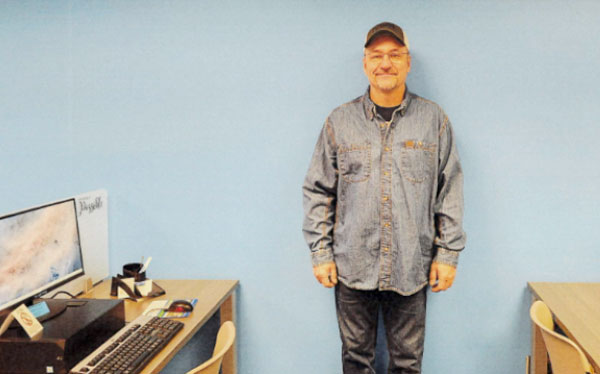RMCEP Grant Helps Young Adults With Disabilities Follow Their Career Dreams

7 Feb 2025
In the Fall of 2024, the Rural Minnesota Concentrated Employment Program (CEP) received $3.4 million from the Minnesota Department of Employment and Economic Development (DEED) to support career development in young adults with disabilities ages 16-24. This grant will be available for the next four years, allowing RMCEP to help people achieve their career goals.
RMCEP has taken a unique approach to this grant and career development for people with disabilities. Rather than simply focusing on job placement, the organization plans to use this grant to help participants reflect on their long-term goals and the steps needed to complete them.
“People with disabilities haven’t been given permission to dream bigger,” says Nancy Stensgard Disability Resource Coordinator (DRC). “We want to help them discover goals they haven’t thought of and identify barriers to those goals. RMCEP will then recommend resources to remove them.”
Read more about the approach that RMCEP takes for disability support and how it helps individuals, families, and business owners in Minnesota.
RMCEP Takes a Career-Based Approach Following High School
The grant is designed to support young adults as they enter the murky period between high school and their careers. This transition is difficult for any student but can be particularly tricky for young adults with disabilities.
“When young people with a disability and IEP leave high school, their structured support system goes away,” says Arlyce Cucich, Operations Grant Manager at RMCEP. “However, a disability doesn’t go away as you age. We want to help them develop a new support system and identify what these supports should look like.”
This grant allows RMCEP to work with students for a longer period of time – both before they graduate and for several years after. This can help students who aren’t sure what they want to do next. Students who enter employment, receive training, or pursue higher education immediately after graduating might return to RMCEP in a few years if they want to change careers or if their disability has interrupted their forward progress at random points in time.
“Anyone can come back and reestablish their career pathway,” says Stensgard, DRC. “We are happy to work with adult persons with disabilities and find resources for them, even if they do not fit the scope of this particular grant.
RMCEP also has additional resources to support students with disabilities. For example, it can help find practitioners for the social security (SSI) reevaluation that occurs when students turn 18. The Ticket to Work program is designed to bust myths about working while receiving SSI and SSDI benefits. People with disabilities can still pursue lasting careers.
Participants Can Involve Families and Trusted Support Persons
Another way RMCEP adds meaning through this grant is by involving multiple people throughout the journey, developing an integrated resource team. The organization works closely with parents, families, or guardians who have supported the youth or young adult participants throughout their education and into their careers. These support persons want the best for their loved ones and want to make sure their careers are stable, engaging, and healthy for them. RMCEP might also connect with teachers, coaches, community partners, or even church leaders who mean a lot to the participant.
“We want to include adult support persons as often as possible when it makes sense,” says Cucich. “Without those folks being involved, they can’t offer support.”
The grant's goal is to shift the discussion away from what’s important for somebody to what’s important to them. This builds long-term self-advocacy skills, along with other life skills like communication, goal-setting, and financial literacy.
RMCEP Also Works Closely With Employers
Along with helping people with disabilities get valuable job training and education to support their career goals, RMCEP works with local employers to encourage them to engage with these applicants. People with disabilities can help fill workforce gaps and help employers discover a wider range of skilled candidates.
“It’s really important to get buy-in from employers so they can consider a greater pool of applicants,” says Cucich. “Many aren’t informed about aspects of ADA compliance or job accommodations. We can connect them to resources.
By pairing employers with career-ready applicants, companies can see that hiring people with disabilities isn’t challenging or expensive. Instead, it is a valuable opportunity to grow the workforce.
RMCEP also listens to employers' needs to learn about the skills they find lacking in the current talent pool. They will share these skills with educators, training providers, and internal teams.
This means future candidates will be even more ready to succeed.
Learn More About This Grant and Other Options
RMCEP should be ready to enroll participants in the DEED grant by July 2025. For now, reach out to learn about various programs serving youth and young adults with disabilities. Create a career pathway and discover other opportunities to get the career training or education you need. For example, the Drive for Five program also offers support for residents with disabilities.
“Anyone is welcome to come in and discuss their needs,” says Cucich. “We can start working with them now or look for other funding sources for the future.”
Learn more about RMCEP and how it helps people from all walks of life. There are several programs, services, and opportunities waiting for you.
More Topics



